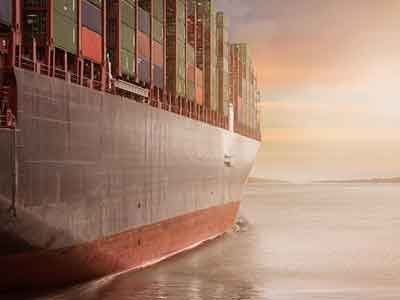 Navigating the customs and port clearance process in the U.S. can feel overwhelming for travelers and businesses alike, especially with the variety of regulations, holiday schedules, and clearance steps involved. Understanding these processes can prevent delays and help you avoid costly penalties. Here’s a guide to help you understand U.S. customs, clearance procedures, port regulations, and holiday schedules so that you can get your shipments through seamlessly.
Navigating the customs and port clearance process in the U.S. can feel overwhelming for travelers and businesses alike, especially with the variety of regulations, holiday schedules, and clearance steps involved. Understanding these processes can prevent delays and help you avoid costly penalties. Here’s a guide to help you understand U.S. customs, clearance procedures, port regulations, and holiday schedules so that you can get your shipments through seamlessly.
U.S. Customs Clearance Basics
Customs clearance is the process by which goods and individuals are vetted and approved for entry into a country’s borders. It makes sense that countries would want to know who and what is coming into their borders for safety reasons. Customs officers examine documentation, inspect items, and determine applicable duties and taxes.
Customs regulations in the U.S. cover various categories, from food and beverages to electronics, personal items, and even pets. Some goods are prohibited or restricted, and understanding these rules is essential to avoid delays or fines.
Types of Regulated Goods
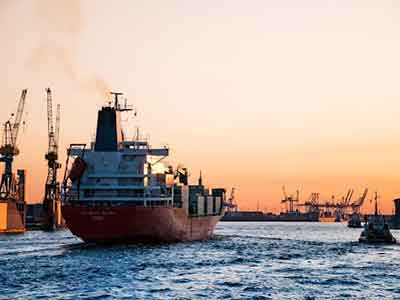 Depending on the regulation, certain labeling or proof of testing may be required. Your customs broker will be able to determine which if any need apply. Usually, the country of origin is required to be put on the packaging of products.
Depending on the regulation, certain labeling or proof of testing may be required. Your customs broker will be able to determine which if any need apply. Usually, the country of origin is required to be put on the packaging of products.
- Restricted and Prohibited Goods: Certain items, such as firearms, medications, and agricultural products, are either restricted or prohibited. Most items that have the potential to be hazardous can often be regulated, so it’s a good idea to check with your customs broker on how to import those.
- Agricultural Products: CBP (Customs Border Patrol) has strict rules about plants, fruits, vegetables, and meat to prevent the introduction of pests or diseases. The FDA (Food and Drug Administration) will have varying regulations depending on the type of agricultural product imported.
- Items Requiring Licenses: Goods like alcohol, tobacco, pharmaceuticals, and chemicals may need permits or licenses to enter the U.S.
How to Prepare to Get a Shipment from China
 You will need to be set up with a customs broker several weeks prior to the time the shipment is made. This usually involves signing a power of attorney and setting up an account with them. Shop around for a reliable broker that will follow your shipment through from start to finish and keep things moving.
You will need to be set up with a customs broker several weeks prior to the time the shipment is made. This usually involves signing a power of attorney and setting up an account with them. Shop around for a reliable broker that will follow your shipment through from start to finish and keep things moving.
The amount of the fees they charge for their services will also vary so it pays to get a few quotes. The US Customs website has a list of brokers in every state that you can call, and you can also find them online.
The Customs Process from Port to Port
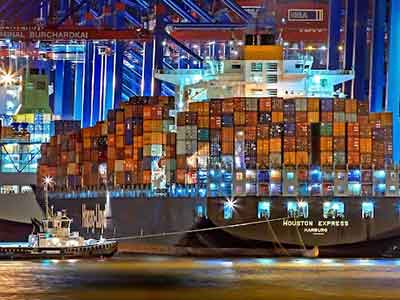 Once the order is ready to ship, space on a vessel has to be reserved for your order. It usually takes about a week to reserve space ahead of time and a shipment on a vessel for it to depart.
Once the order is ready to ship, space on a vessel has to be reserved for your order. It usually takes about a week to reserve space ahead of time and a shipment on a vessel for it to depart.
We will email the ISF data to you and your customs broker 48 hours before the vessel departs, it is required to have the filing done 24 hours before the vessel leaves China or a severe fine can be inflicted of $5,000.00 dollars.
Once the vessel has left, the bill of lading is another shipping document that needs to be filed with customs. We send these over to our client’s customs brokers as soon as they are available so they can be promptly filed. Once those are filed, the next phase of the customs clearance can begin once the vessel arrives at its port destination.
At this point your broker will submit an “entry application” to US Customs that shows the duty rates you will pay for their approval, and ask Customs to allow the shipment to be released. US Customs inspects some shipments on a random basis and there is a slight chance your shipment might be inspected. If an inspection does occur there can be a 1-2 week delay at the port.
Most of the time Customs clears the shipment and your broker is allowed to proceed to the next step, which is to track your shipment through the container unloading process and get it shipped from the port to your door by the shipping company of your choice. You do have the option of picking it up yourself; if you want to do this you will need to advise your broker.
Types of Ports
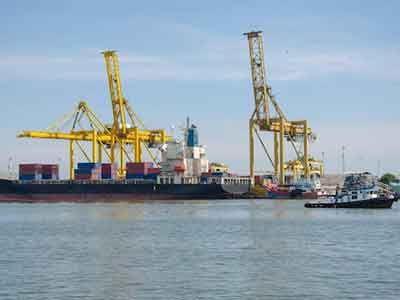 When most people hear the terms “port” and “customs” in the same sentence, they tend to think of sea ports. However there are also ports inland, especially in major cities that can clear and process shipments. Airports also process goods from air shipments on a regular basis.
When most people hear the terms “port” and “customs” in the same sentence, they tend to think of sea ports. However there are also ports inland, especially in major cities that can clear and process shipments. Airports also process goods from air shipments on a regular basis.
Impact of Holidays on Clearance
U.S. federal holidays can affect customs clearance timelines. While major ports often remain open, many processes slow down, and cargo clearance may experience delays. Understanding how holidays impact clearance can help you plan your entry or shipping accordingly. Some of the holidays to consider on the United States side can include New Year’s Day, Independence Day, Thanksgiving, and Christmas.
Something to consider is although the CBP can work on a limited schedule during federal holidays, private entities involved in clearance, like brokers and shipping lines, may close completely or reduce staffing.
One of the major holidays worldwide to consider is the Chinese New Year. This holiday goes from late January through mid-February. As you can imagine, many orders are placed beforehand in order to have stock during the holiday, and as such customs can end up being backlogged and bottlenecked with the influx of shipping vessels to process. This can cause delays in shipments being delivered.
Planning for Smooth Customs Clearance
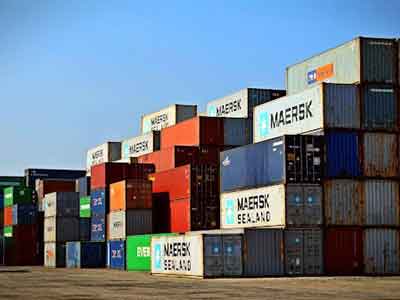 Taking proactive steps can minimize delays and ensure your entry or shipment complies with CBP regulations. Here are some things you can do.
Taking proactive steps can minimize delays and ensure your entry or shipment complies with CBP regulations. Here are some things you can do.
- Prepare All Documents in Advance – Missing or incomplete documentation is a common reason for customs delays. We take care of this for our customers by sending the necessary documents direct to our clients’ customs brokers at the appropriate times to avoid fees. However, you should check if any required testing or labeling needs to be done well in advance so that all can be put together by asking your customs broker what may be required.
- Understand Duties and Fees – Being prepared for potential costs helps avoid unexpected expenses at the border. You should get with your customs broker for a quote on potential duties, tariffs, and port fees so you aren’t caught unaware when you need to pay them.
- Plan around Holidays – If your entry or shipping date falls near a major holiday, plan extra time for clearance. This is especially true of the Chinese New Year Holiday where several weeks of delay can happen due to the increase of shipments.
Understanding customs clearance, regulations, and U.S. port operations can make a world of difference in your travel or import experience. By knowing what to expect and planning around holidays and regulations, you can navigate U.S. customs with greater ease and confidence. Customs doesn’t have to be a scary obstacle to overcome.
If you want more information on how to navigate your shipment through customs, contact us!
